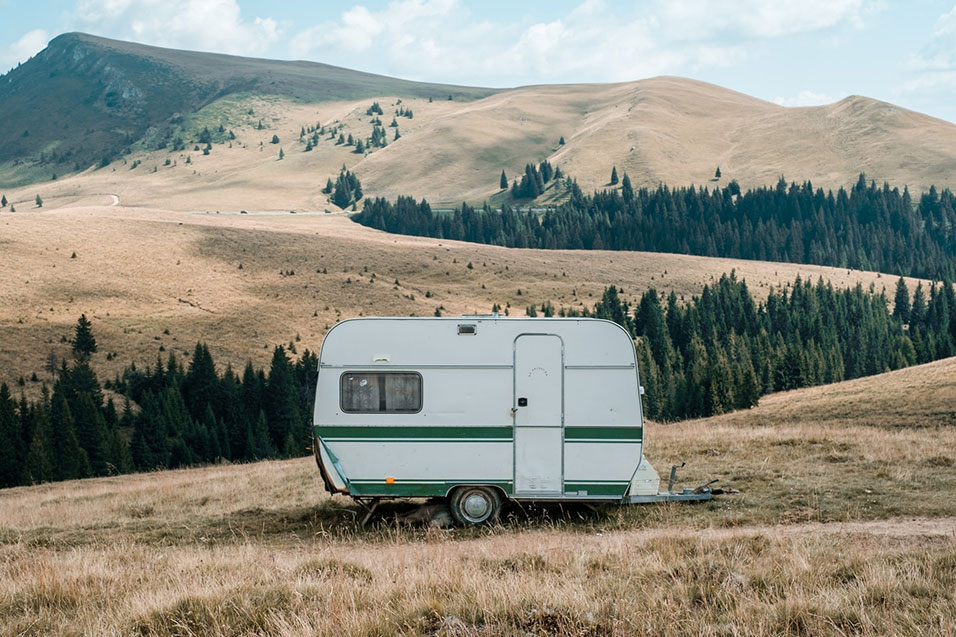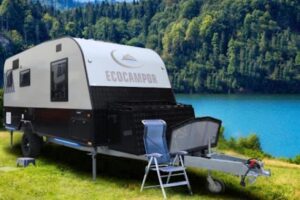So Then What’s an RV?
The term RV stands for a recreational vehicle. These days, RV is an umbrella term that refers to a range of campers, from motorhomes and campervans to fifth wheels and lightweight trailers.
Some people will forever staunchly defend their position that without a motor, a trailer camper is not a recreational vehicle. But colloquially, RV means any type of camper with wheels.
Motorhomes
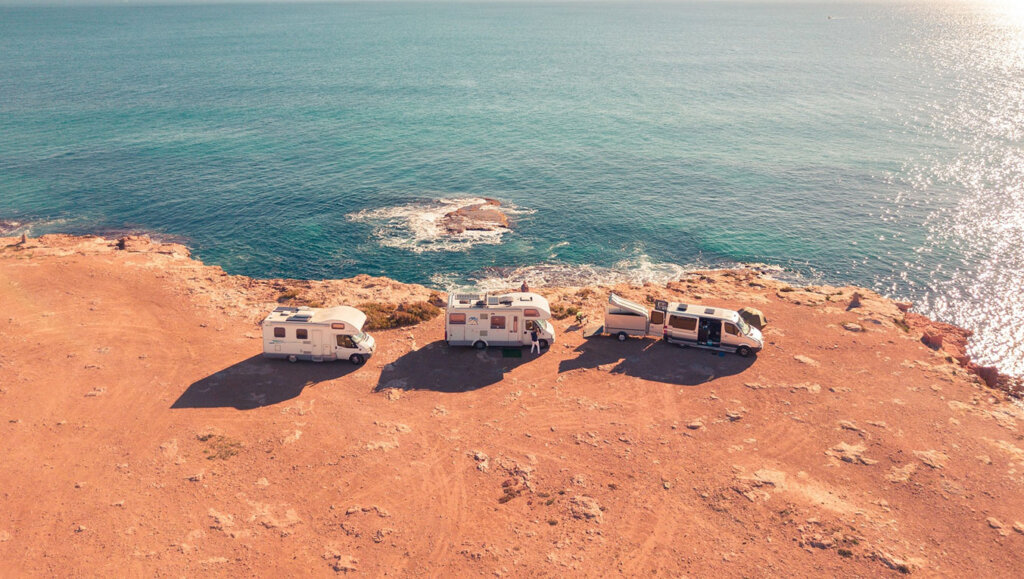
A motorhome is a recreational vehicle that has an engine and is self-propelled. This means that the camper can move on its own power, without the need for a towing vehicle.
Motorhomes are popular amongst people who prefer to not tow a trailer and are known for offering spacious and luxurious living accommodations.
There are three main categories of motorhomes available on the new and used motorhome market:
- Class A: These are the largest motorhomes you’ll see on the road. Class A motorhomes are about as big as a school bus and come with all the modern amenities that can be found in a house. They have ample storage, plenty of sleeping room, and engines strong enough to haul a commuter car.
- Class C: The next size down in the motorhome world, these campers feature medium-sized living quarters and most often have a double berth sleeping area that extends out over the cab of the vehicle. Many newbies to the RV world opt for a Class C motorhome due to its manageable size and price.
- Class B: Anyone living the #vanlife, is living in a Class B motorhome. Class B’s are small and stealthy. They’re not going to have as many luxuries as a Class C or Class A, but their small size allows the owner more access to remote locations in the backcountry. Converted vans are increasingly popular amongst boondockers who want to escape to the isolated regions of this earth.
Travel Trailers
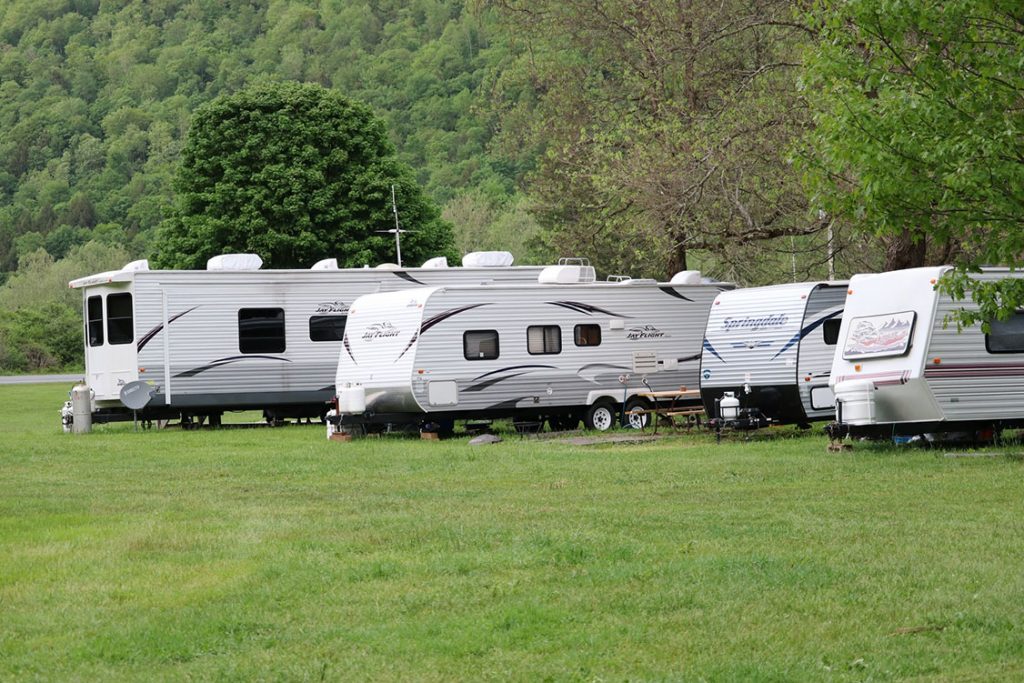
From itty-bitty teardrop trailers to massive fifth wheel trailers, towable trailers can be found in a broad range of sizes and styles. Here are some of the main styles you can expect to see driving around your National Parks and wild spaces:
- Fifth Wheels: Similar in size to a Class A motorhome, these large camper trailers require a powerful towing vehicle to be transported. Fifth wheels are luxurious and can be quite expensive, but provide plenty of sleeping area and are quite comfortable to travel in.
- Travel Trailer: While the term “travel trailer” colloquially refers to all towable trailers, this camper can legitimately claim the title. It is a medium sized camper that is very popular among new RVers who want a towable camper.
- Lightweight: The next size down from a travel trailer, this camper is about as small as you can go in a hard-shelled towable trailer and still be able to stand up inside. Lightweight trailers are budget friendly to purchase and insure, and won’t totally destroy your gas mileage as you tour around.
- Expandable/Pop Ups: The swiss army knife of trailers. Pop up campers are collapsed into a condensed, aerodynamic box when being towed, and expand into a large, trailer/tent hybrid when parked. These types of camper trailers are being manufactured in an increasingly wide variety of styles and offer plenty of opportunities for customization. Many modern models are being made with 4×4 capabilities to appeal to the backcountry boondocker community.
- Teardrops: Ultra-lightweight and cheap, these little guys pretty much just offer a place to lay your head at night and take refuge from the elements. Many models also have a kitchenette and some storage compartments installed in the back half of the unit which offers a bit more livability than just a bed. People traveling out of a teardrop should anticipate spending a majority of their day outside, primarily using the trailer for sleep.
Give my article on motorhomes vs travel trailers a read if you are still curious about the differences in these types of campers.
If you are in the market for a new camper and aren’t super thrilled about buying a motorhome or a trailer, you’re still in luck. Campers like this fiberglass truck camper offer all of the amenities that trailers offer, without the need for a hitch or towing. All you need is a powerful truck to lay it in and you’re ready to hit the road.
Is a truck camper a type of RV? Hard to say honestly, but that’s a debate for another day.
Motorhomes vs Travel Trailers
Not all RVs are created equal. Let’s look at some ways that the two main types of RV compare.
Price
A towable trailer will almost always be cheaper than a motorhome of comparable size. Without the need for engines and all the associated parts, manufacturers are able to sell travel trailers for significantly less than their motorized counterparts.
Drivability
The drivability of RVs is exceptionally subjective. People who hate towing are obviously not going to enjoy owning any form of a trailer. Those of you who do not mind towing get to enjoy the perk of unhitching your trailer and driving around town unencumbered.
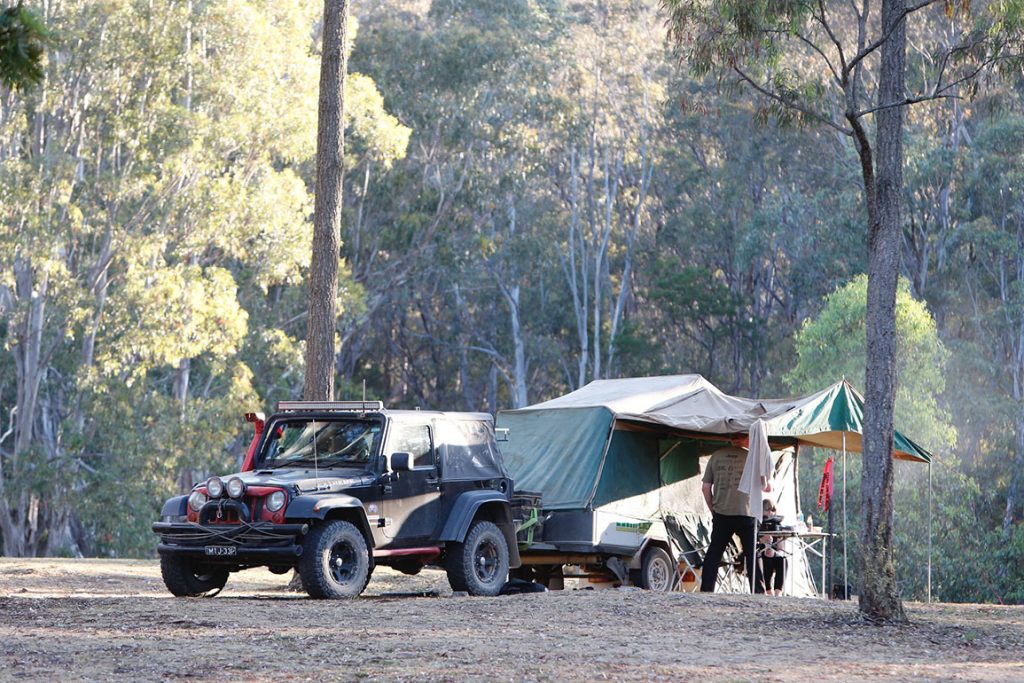
Whatever your preferred style, make sure you enjoy driving the rig you buy for yourself. It sucks going on a long road trip in a camper you don’t enjoy driving, ask me how I know…
Maintenance/Repairs
Motorhomes require more maintenance and preventative care than trailers. This is simply due to the complexity of a rig that has an engine and all parts that can potentially break. With this in mind, budget travelers will want to go for a trailer.
Another massive perk of trailers: if your towing vehicle breaks down, you can simply unhitch the camper and stay in it while your vehicle is in the shop. Some especially chill mechanics will let people camp in the shop’s parking lot while repairs are being made. Probably won’t be the most scenic campsite ever, but it is certainly friendly on the wallet.
Which Is Better?
No such thing. Beauty is in the eye of the beholder as they say, or I suppose in this instance, “the best” is in the eye of the beholder.
Personal preference on camping style and location, the quality and luxury desired out of an RV, and overall usability is all going to play into which type of camper might be your preferred style.
Personally, I prefer small towable trailers. I don’t need a whole lot of livable space while camping because I am outside 99% of the waking day, and I will always prefer saving money on gas and insurance.
Having trouble justifying buying a travel trailer? Give this article a read.
Closing Thoughts
Back to the main point here: a travel trailer is considered an RV.
RVs are super fun toys that allow you unique access to the outdoors while bringing along the comforts of a house. You won’t regret buying an RV if you have the adventure bug and want to maximize your time on the road.
See ya out there!

